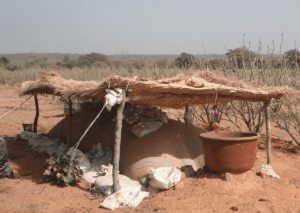
Agriculture
January 21, 2024
MBSA Biogas Plant
Read SolutionImplemented by
Mali Biocarburant SA
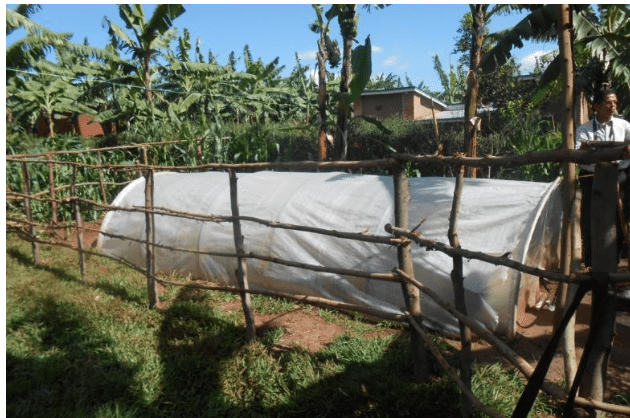
Updated on December 17, 2024
·Created on May 25, 2016
Flexi Biogas BG5 is a system that degrades biological matter into a gas useful for cooking, through a flexible above-ground plastic digestor.
Flexi Biogas BG5 developed by Biogas International Limited is a flexible above-ground system that produces biogas. The market name of the BG5 model is Std Domestic. The Flexi system is installed in only a few hours and normally are operational within 7-10 days, is portable and expandable, and runs on any biodegradable matter. Since it is a domestic model, it can supply sufficient cooking fuel for a family of up to around 12 members.
Target SDGs
SDG 7: Affordable and Clean Energy
SDG 8: Decent Work and Economic Growth
Market Suggested Retail Price
$691.95
Target Users (Target Impact Group)
Household, NGOs
Distributors / Implementing Organizations
Although distribution started as part of an IFAD program, Biogas International Limited is the sole distributor to date. There are a few local and regional agents who market and install systems on their behalf as well.
Competitive Landscape
Direct competitors include Sistema Biobolsa, ADRA Cold Climate Biodigester, and ARTI Biogas Plant.
Countries
Kenya, Rwanda
Manufacturing/Building Method
Locally manufactured with specially treated robust materials designed to withstand all weather conditions in Nairobi, Kenya.
Intellectural Property Type
Patent
User Provision Model
Biogas International Limited is the sole manufacturer and distributor.
Distributions to Date Status
500 Flexi Biogas systems were distributed between 2011 and early 2014. This product started as a pilot program launched by the IFAD. The IFAD intended to deploy about 1,000 more systems over the course of 2014–2016.
Output energy product
Biogas
Average daily biogas production (m3/day)
2 to 3
Description of waste source(s)
Animal and organic waste
Waste input requirements (kg per hour or day)
20 kg of fresh cow dung yields 1,000 litres of cooking gas.
Description of other input requirements
This product requires a 50% water – 50% dung mixing ratio when feeding the digester
Other input requirements (amount per hour)
Unknown
System dimensions (m)
6 m3
Design Specifications
The Flexi Biogas BG5 includes four key parts: plastic input and output pipes, a reinforced plastic digester bag, plastic piping to transport biogas to home or storage, and a plastic greenhouse covering. The system can run on any biodegradable matter - cow, pig, goat, sheep, rabbit or/and chicken dung, kitchen waste, market waste, grass, water hyacinth, farm weed, and garden clipping.
Process: Flexi Biogas systems perform anaerobic digestions. Anaerobic digestion is the breakdown of organic material by micro-organisms in the absence of oxygen. It produces biogas, a methane-rich gas that also contains carbon dioxide with trace amounts of other gases; and digestate, a source of nutrients that can be used as a fertilizer. The digestion process begins with bacterial hydrolysis of the input material in order to break organic polymers into smaller molecules that finally become methane and carbon dioxide after acidogenesis and methanogenesis.
Technical Support
Free, provided by Flexi Biogas Solutions. Upon installation, users are trained on how to run and maintain the system, what does and what doesn’t, troubleshooting the system, and how to solve hitches. Technical support to all the clients is offered 24/7 via mobile phone and email.
Replacement Components
1-year warranty on all components against manufacturer defects. Apart from the digester envelope itself, all other components are "off-the-shelf" and are available for replacement in every hardware store.
Lifecycle
This product has a lifespan of at least 10 years and it can be enhanced by applying a sunscreen UV block solution every seven years. The greenhouse tunnel requires replacement every 5 years.
Manufacturer Specified Performance Parameters
The manufacturers specify the following as the system's benefits:
Vetted Performance Status
A technical and field performance evaluation of Flexi biogas plants was conducted by the International Fund for Agricultural Development. As a conclusion on the study, researchers stated:
Safety
There are some dangers associated with biogas digesters: fire hazard, leaks, and negative pressure, but since this is a small/ family size system the hazards are also lower.
Complementary Technical Systems
A BioDC generator can be acquired in order to run automotive chargers, for powering lights, TV, radio phones, etc.
Academic Research and References
Grist, N., Winkels, A. and Reynolds, J., 2018, Baseline Study: Dunga Beach Biogas Community and Household Pilot, the University of Cambridge Institute for Sustainability Leadership (CISL), 2018.
Benjamin K. Sovacool, Matthew Kryman, Taylor Smith, Scaling and commercializing mobile biogas systems in Kenya: A qualitative pilot study. Renewable Energy, Volume 76, April 2015, Pages 115-125
Sehgal, K., Wanjihia D., Kembe M., Flexi Biogas systems: inexpensive, renewable energy for developing countries. IFAD, 2012 November.
Vijay, V. Technical and field performance evaluation of Flexi biogas plants. IFAD, 2014.
International Fund for Agricultural Development. n.d. IFAD.
Flexi Biogas. n.d. Biogas International.
Biogas International Limited . 2015. Flexi Biogas Systems Brochure. Biogas.co.ke. Kenya: Biogas International Limited.
Biogas International Limited . 2018. Flexi Domestic Systems. Biogas.co.ke. Kenya: Biogas International Limited.
Rota, Antonio, and Karan Sehgal. 2015. How to Do – Mainstreaming Portable Biogas Systems into IFAD-Supported Projects. Ifad.org. Rome, Italy: IFAD.
Compliance with regulations
Unknown
Evaluation methods
Field Trials
Other Information
Biogas International Limited also offers other products like gas systems, utilities, bio-slurry systems, and more.

Agriculture
January 21, 2024
Implemented by
Mali Biocarburant SA
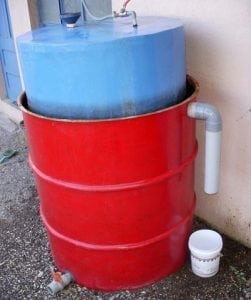
Agriculture
December 18, 2024
Implemented by
Tinytech Plants
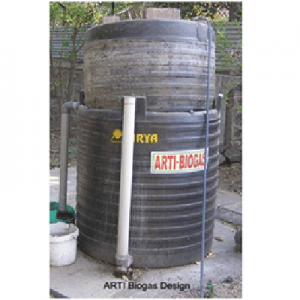
Agriculture
January 28, 2024
Implemented by
Appropriate Rural Technology Institute (ARTI)
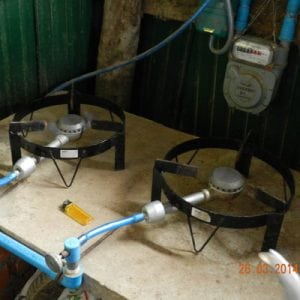
Agriculture
May 27, 2024
Implemented by
Development Technology Workshop
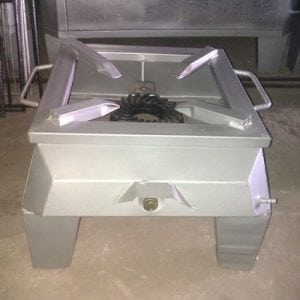
Agriculture
May 27, 2024
Implemented by
Montals Engineering
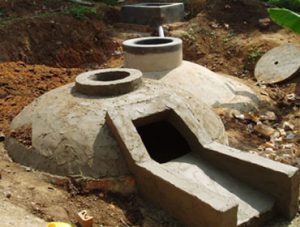
Agriculture
December 19, 2024
Implemented by
Green Heat
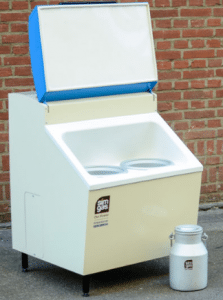
Agriculture
February 26, 2024
Implemented by
SimGas
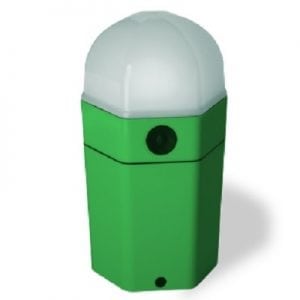
Agriculture
December 11, 2024
Implemented by
Ambros Huber
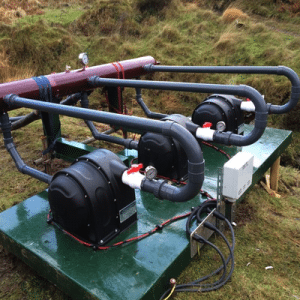
Agriculture
December 2, 2024
Implemented by
EcoInnovation Ltd. (Powerspout)
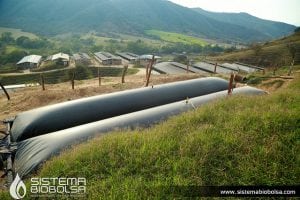
Agriculture
January 22, 2024
Implemented by
Sistema.bio
Have thoughts on how we can improve?
Give Us Feedback
The use of flexible biogas plants is very popular in Kenya and other places in East Africa. They are much cheaper than masonry plants, but have shorter lifetimes. Flexible bag plants were first used in Vietnam, but masonry plants became more popular, as they did last much longer. The vary large programmes in Asia (India and China) all use fixed dome plants.
500 plants in three years is seen as a small programme for domestic biogas. It is not clear how it can be patented, as flexible plastic biogas plants have been used for at least 20 years.
Plastic biogas plants can be made very quickly. Practically, they have a short life-time, unless they are looked after very carefully.
There is a large number of publications on biogas from groups such as SNV. Most of the successful programmes were based on masonry plants, such as fixed dome systems.
All of the biogas programmes that have won Ashden Awards (see http://www.ashden.org) use fixed dome digesters.